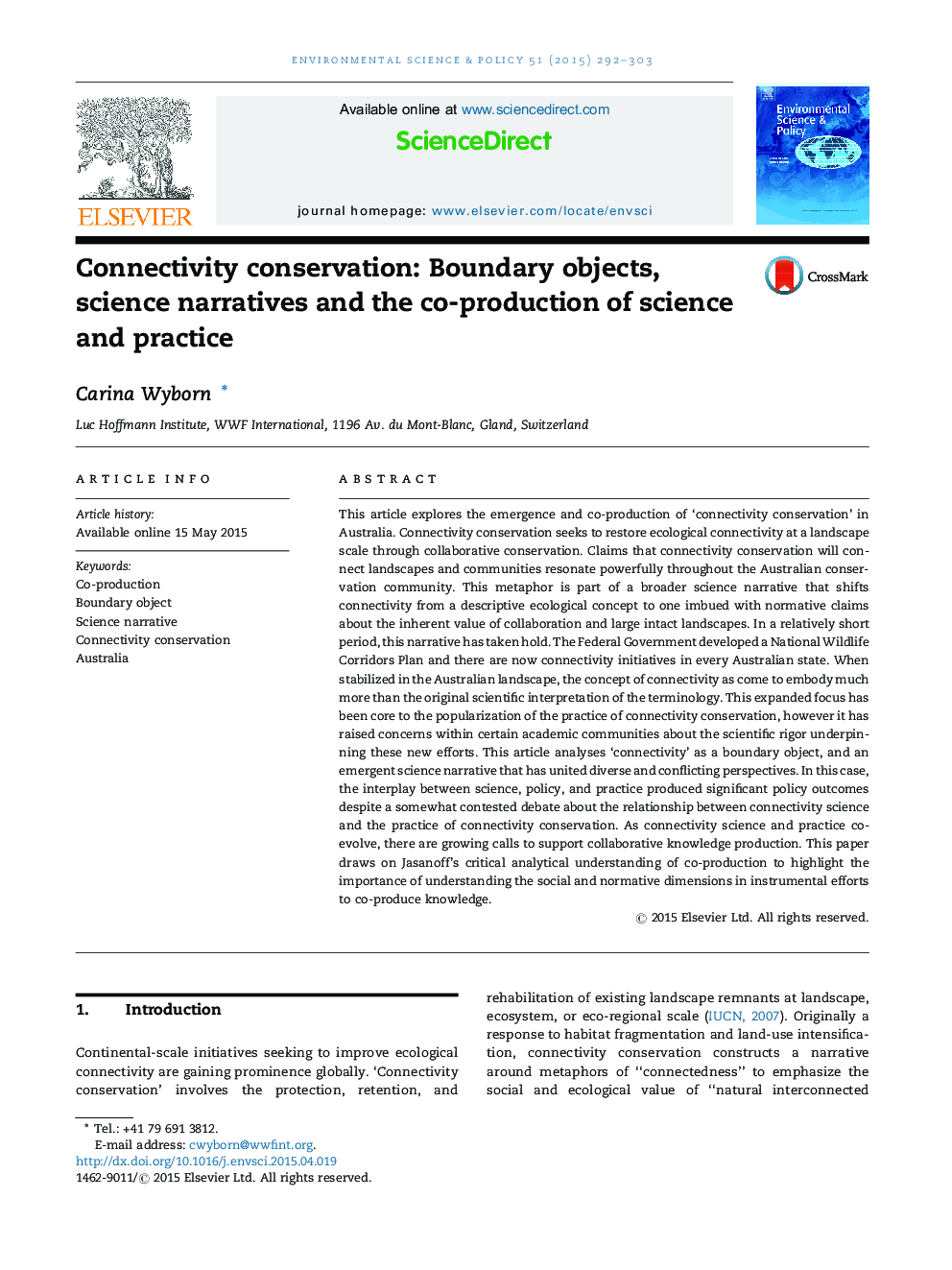| Article ID | Journal | Published Year | Pages | File Type |
|---|---|---|---|---|
| 7467450 | Environmental Science & Policy | 2015 | 12 Pages |
Abstract
This article explores the emergence and co-production of 'connectivity conservation' in Australia. Connectivity conservation seeks to restore ecological connectivity at a landscape scale through collaborative conservation. Claims that connectivity conservation will connect landscapes and communities resonate powerfully throughout the Australian conservation community. This metaphor is part of a broader science narrative that shifts connectivity from a descriptive ecological concept to one imbued with normative claims about the inherent value of collaboration and large intact landscapes. In a relatively short period, this narrative has taken hold. The Federal Government developed a National Wildlife Corridors Plan and there are now connectivity initiatives in every Australian state. When stabilized in the Australian landscape, the concept of connectivity as come to embody much more than the original scientific interpretation of the terminology. This expanded focus has been core to the popularization of the practice of connectivity conservation, however it has raised concerns within certain academic communities about the scientific rigor underpinning these new efforts. This article analyses 'connectivity' as a boundary object, and an emergent science narrative that has united diverse and conflicting perspectives. In this case, the interplay between science, policy, and practice produced significant policy outcomes despite a somewhat contested debate about the relationship between connectivity science and the practice of connectivity conservation. As connectivity science and practice co-evolve, there are growing calls to support collaborative knowledge production. This paper draws on Jasanoff's critical analytical understanding of co-production to highlight the importance of understanding the social and normative dimensions in instrumental efforts to co-produce knowledge.
Related Topics
Physical Sciences and Engineering
Energy
Renewable Energy, Sustainability and the Environment
Authors
Carina Wyborn,
